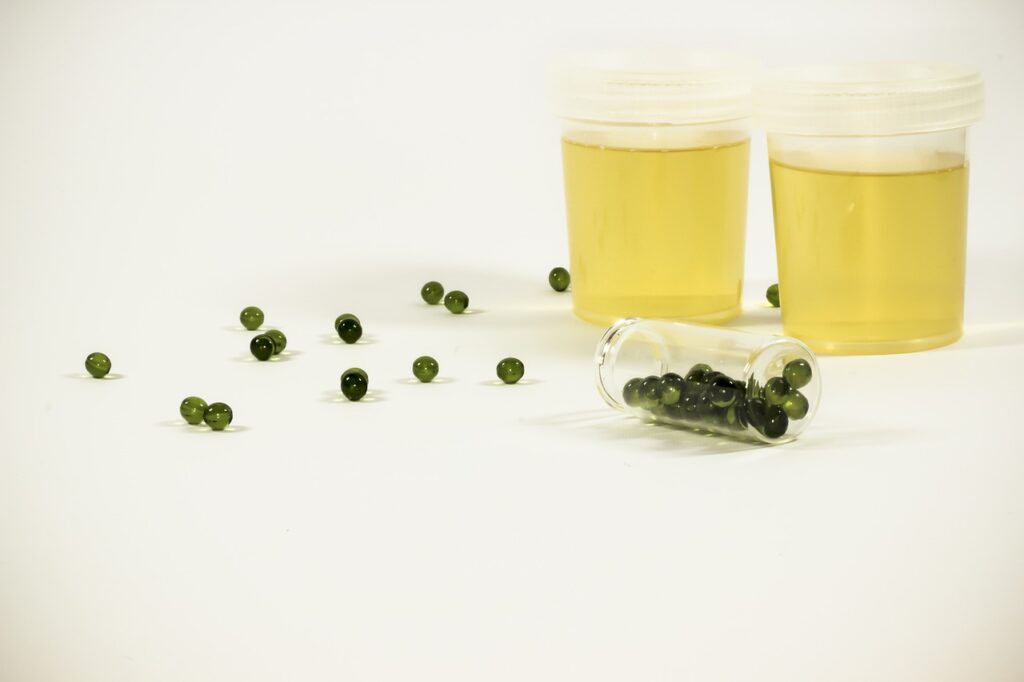Excessive Discharge of Urine: Natural Remedies, Historical Insights, and Modern Solutions
Excessive discharge of urine affects millions worldwide and often links to diabetes mellitus or diabetes insipidus. While modern medicine offers effective treatments, historical remedies from the 19th century reveal fascinating approaches to managing this condition. Whether referred to in historical texts as excessive discharge of urine or as known today as frequent urination, managing this symptom is key to improving the quality of life. This guide blends traditional methods with modern knowledge to provide practical insights and solutions.
What Causes Excessive Discharge of Urine in Diabetes?
Excessive urination usually results from two main conditions:
- Diabetes mellitus – Features sugar-laden urine, intense thirst, dry skin, weight loss, fatigue, and inflammation near the urinary tract.
- Diabetes insipidus – Produces similar urinary volume without sugar, often due to hormonal or kidney regulation issues.
The Underlying Mechanism: Why Polyuria Occurs
In both conditions, the root problem is an inability to concentrate urine. In diabetes mellitus, excess glucose in the blood spills into the urine, osmotically drawing water with it. In diabetes insipidus, the body simply lacks or cannot respond to the hormone (vasopressin) that tells the kidneys to reabsorb water. This leads to the production of large volumes of dilute urine, manifesting as persistent frequent urination.
Moreover, both conditions trigger cold feet, dizziness, headaches, and breathing difficulty if untreated. Therefore, understanding the cause ensures effective treatment. You can read more about root causes of diseases in our What Causes Disease section.
Traditional Remedies for Diabetes (Mellitus & Insipidus)
Historical medical records describe several remedies for excessive discharge of urine, focusing on restoring body balance and reducing kidney strain. 19th-century physiomedical and Eclectic medical texts, such as those by Dr. W.H. Cook, describe several remedies for what was then termed ‘profuse urination.’ These approaches focused on restoring the body’s vital balance and reducing kidney strain, often viewing frequent urination as a sign of systemic weakness.
Vapor Bath Therapy
First, weekly vapor baths stimulate perspiration, often suppressed in those with diabetes. This process follows with body rubs using cayenne pepper, salt, and vinegar to improve circulation. Learn more from our blog on curative baths and how to use them.
Herbal Decoctions
A popular remedy combines:
- Prickly ash berries (2 oz)
- Agrimony (2 oz)
- Meadow fern berries (2 oz)
- Bistort root (2 oz)
For these, boil in water until reduced, strain, mix with cayenne, sweeten with liquorice, and serve four times daily.
Dietary Guidelines
In addition, strict sugar avoidance remains essential. Diets should avoid focusing on animal protein, minimal fluids, and natural seasonings to control urinary output. Explore our Dietary Choices for Health section for healthy eating tips.
Pig’s Foot Powder
A unique method involves baking pig’s hoofs to a dark brown, grinding them into powder, and taking a teaspoon daily. Many historical accounts claim this approach reduces excessive discharge of urine. From a modern lens, this remedy was likely a source of electrolytes and minerals, which we now know are crucial for fluid balance (as discussed in the modern insights below). However, its preparation and safety by today’s standards are not validated.
Modern Insights on Traditional Treatments
While historical remedies for excessive discharge of urine were born of observation rather than clinical trials, modern science is now evaluating their mechanisms. This research provides a fascinating bridge between traditional wisdom and evidence-based practice, though it is crucial to remember that these are supportive measures and not substitutes for professional medical advice.
Several herbs once commonly used show promising biological activity that aligns with their traditional purposes:
- Cayenne Pepper: The compound capsaicin in cayenne is a potent anti-inflammatory and circulatory stimulant. A study on Intravesical Capsaicin for Bladder Sensory Disorders has shown that capsaicin can influence bladder function through specific receptors (TRPV1), which are involved in sensing bladder fullness and controlling urination reflexes. This provides a plausible scientific mechanism for its historical use. For individuals managing diabetic polyuria (a common cause of excessive discharge of urine), improved circulation can support nerve and kidney health, while its anti-inflammatory properties may soothe irritated tissues.
- Agrimony: This herb is rich in tannins, which have an astringent (tissue-tightening) effect. This traditional “tonic for the urinary system” is thought to help reduce mucosal irritation in the bladder. Furthermore, agrimony may support healthy blood sugar metabolism, addressing a key potential driver of frequent urination.
- Bistort Root: Similarly high in tannins, bistort root has been historically prized for its ability to soothe membranes. Its potent astringent action is believed to help reduce irritation and inflammation along the urinary tract lining, potentially lessening the urgent, frequent signals that lead to an excessive discharge of urine.
For more urinary wellness guidance, visit Home Remedies for UTI.

7 Science-Backed Natural Ways to Manage Excessive Discharge of Urine
Dealing with frequent urination or an excessive discharge of urine can disrupt daily life, sleep, and comfort. The good news is that several simple, evidence-based lifestyle adjustments can make a real difference. While medical guidance is essential to identify any underlying condition, these natural approaches can support your body’s healing rhythm and help restore balance.
- 1. Balance Your Carbohydrate Intake
- Large, carb-heavy meals—especially those rich in refined sugars—can cause sharp blood sugar spikes. This triggers insulin release, sometimes followed by a sudden drop in glucose that stresses your system and promotes frequent urination. Choosing complex carbohydrates like whole grains, beans, and vegetables helps keep blood sugar steady, easing one of the main contributors to urinary imbalance.
- 2. Hydrate Smartly
- Both over-hydration and dehydration can worsen symptoms. Drinking too much water, especially before bedtime, increases urine volume, while too little fluid can irritate the bladder. Aim for steady, moderate hydration throughout the day and reduce fluid intake in the evening for more restful nights.
- 3. Include Herbal Support (with Professional Advice)
- Traditional herbal teas—like agrimony or parsley root—have long been used to support urinary tract health. These herbs may help tone bladder tissues and ease irritation. However, always consult your doctor first, as herbs can interact with certain medications. Think of them as natural companions to your overall wellness plan, not substitutes for medical care.
- 4. Stay Active with Gentle Exercise
- Regular physical activity supports blood sugar control and boosts circulation, which benefits kidney and bladder health. Strengthening pelvic floor muscles through exercises like Kegels can also improve bladder control and reduce urgency—especially valuable for those managing frequent urination or nighttime trips to the bathroom. Learn more on our guide on best exercise routine for health.
- 5. Practice Stress Management
- Emotional stress has a direct effect on bladder sensitivity. When the body remains in “fight-or-flight” mode, muscle tension and stress hormones can increase urinary urgency. Relaxation techniques like yoga, slow breathing, or meditation activate the body’s “rest and digest” response, calming both the mind and the bladder. For these techniques, and many others, explore our guide on mindful living guide for health and vitality.
- 6. Watch for Possible Urinary Tract Infections (UTIs)
- A sudden increase in the urge to urinate—especially with burning, discomfort, or cloudy urine—could indicate a UTI. Early medical treatment prevents complications and helps your body recover faster. Never ignore new or worsening urinary symptoms.
- 7. Support Electrolyte Balance
- Electrolytes such as sodium, magnesium, and potassium play a key role in fluid regulation. An imbalance can cause excessive urination or dehydration. Including foods like bananas, spinach, nuts, and seeds in your diet helps maintain optimal hydration and reduces the cycle of an excessive discharge of urine.

FAQs About Excessive Discharge of Urine
Can frequent urination or excessive discharge of urine improve naturally?
Yes. While conditions like diabetes require medical management, adopting lifestyle changes and natural remedies can help ease symptoms of frequent urination. Herbal options such as agrimony tea, cayenne pepper, and balanced hydration support bladder health and help the body regain fluid balance over time.
How does diabetes insipidus differ from diabetes mellitus?
Though both can cause frequent urination, they differ in origin. Diabetes insipidus occurs when the kidneys can’t properly regulate water, leading to dilute urine without sugar. Diabetes mellitus, on the other hand, results from high blood sugar levels that cause glucose to appear in the urine. Understanding the difference is vital for correct diagnosis and treatment.
Are herbal remedies safe alongside modern medical treatments?
Many herbal remedies can safely complement medical care when used under professional supervision. However, certain herbs may interact with medications. Always consult a healthcare provider before starting any herbal therapy to ensure safe and effective integration with your current treatment plan.
Final Thoughts
By combining historical remedies with modern insights, you gain a richer understanding of managing excessive discharge of urine. While some old treatments seem unusual, they reflect early attempts at symptom relief. Therefore, blending tradition with science offers a powerful approach to urinary health.
